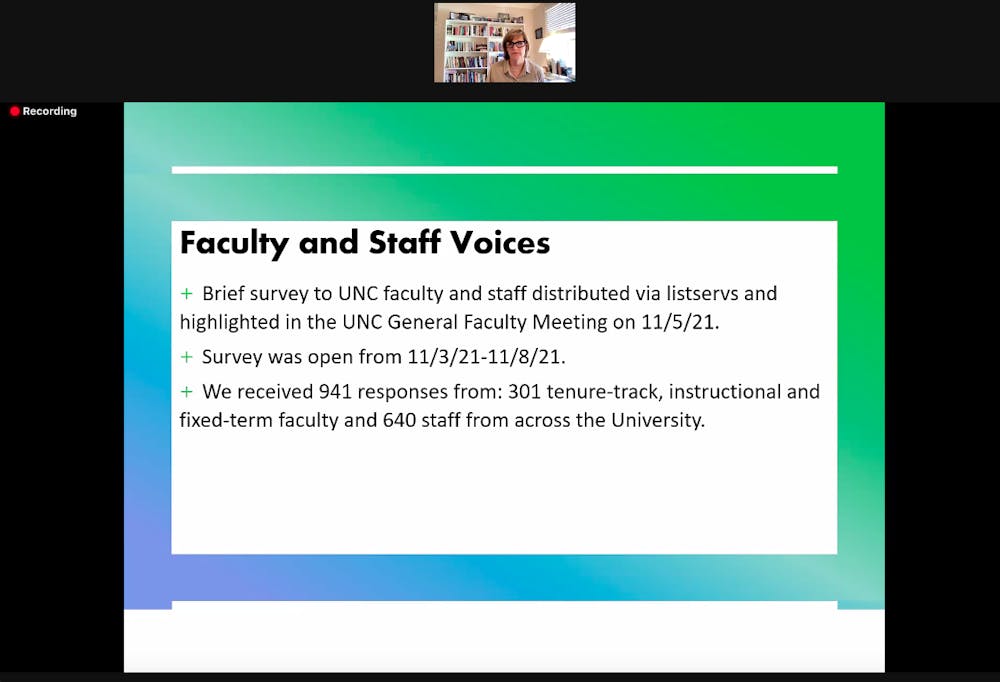The UNC Mental Health Summit brought together faculty, staff and student leaders Monday to discuss mental health on campus, with specific sessions focused on campus culture.
What happened?
- The "Campus Culture: Student voices" session was moderated by Vice Chancellor for Student Affairs Amy Johnson and Dean of Students Desirée Rieckenberg.
- Student panelists included members of Undergraduate Student Government, Graduate and Professional Student Government, Mi Pueblo, Peer2Peer, Hha! Peer Educators and student-athletes.
- In the presentation from GPSG, Director of Health and Wellness Cristopher Grohs presented potential solutions to improve the mental health of graduate and professional students.
- These solutions included introducing wellness resources during orientation, encouraging students to observe University-sponsored wellness days, including wellness resource information in course syllabi. Additionally, Grohs mentioned potential town halls focused on student wellness, as well as social programming for graduate and professional students.
- The athletes who presented included senior softball pitcher Hannah George, senior track and field member Madias Loper, graduate track and field member Jill Shippee and senior soccer midfielder Carly Wetzel. The four athletes talked about the specific mental health challenges and added pressures they face, especially given their schedules.
- “Student-athletes are humans too," Shippee said. "We have the same struggles and problems as everyone else."
- Wetzel said that the Carolina Athletics Mental Health and Performance Psychology Program is a great resource, but that the program only receives an annual budget of $1,000 and currently has 15 people on the waitlist, which makes it difficult for athletes to adequately receive mental health support when they need it.
- Chairperson of the Faculty Mimi Chapman and psychology and neuroscience professor Andrea Hussong, as well as other members of the faculty and staff spoke at the "Campus Culture: Faculty and staff voices" session.
- Hussong presented the results of a survey that was sent to faculty and staff about mental health on campus. The survey received 941 responses in total, with 301 responses from faculty and 640 from staff.
- In the survey responses, 81 percent of faculty and 76 percent of staff said they thought the overall level of distress in students that they interact with has increased this fall.
- Hussong said many faculty who responded to the survey said that they did not have enough time and support to meet increased instruction demands. Survey responders also said they have concerns about when absences will be excused, coordinating hybrid classes and managing flexibility in large classes.
- Hussong said many faculty who responded to the survey reported strategies they have used to increase responsiveness in students, including flexibility with assignments and deadlines, promoting wellness and reaching out to vulnerable students. Some faculty said they have been helping to connect students to mental health services.
- In the new general education curriculum, Hussong said, all incoming first-years will be required to take a course called College Thriving, which will cover topics like wellness and mental health.
- Hussong presented the results of a survey that was sent to faculty and staff about mental health on campus. The survey received 941 responses in total, with 301 responses from faculty and 640 from staff.




